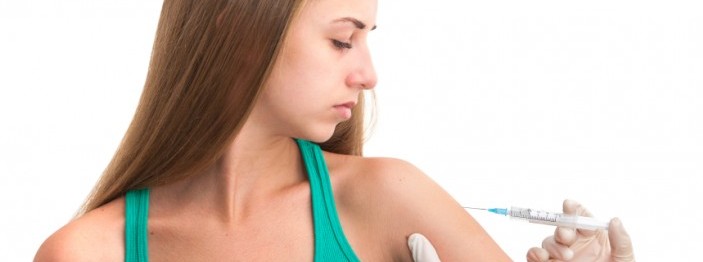Gardasil vaccine not linked to multiple sclerosis
A new study has shown that young women who receive the Gardasil vaccine against human papillomavirus (HPV) do not have a higher risk of developing MS (Scheller and colleagues. JAMA 2015;313:54-61). In fact, the risk of MS may be a little lower for those who get vaccinated.
The study analysed a database of almost four million people in Denmark and Sweden, and looked at MS risk in the two years after being vaccinated Overall, 6 cases of MS per 100,000 person-years occurred in young women who were vaccinated compared to about 22 cases per 100,000 person-years in unvaccinated young women. The adjusted risk was 0.90 for the vaccinated group (i.e. a 10% lower risk of MS). The vaccinated group was also not at higher risk of developing another demyelinating disease (risk ratio 1.0).
The treatment used was the Gardasil quadrivalent vaccine, which protects against four strains of HPV. HPV infection is associated with an increased risk of cervical cancer, and mass vaccination of younger women has been recommended in an effort to reduce or eliminate cervical cancer later in life. Some have opposed vaccination due to concerns that it encourages risky sexual activity. In the U.S., the Centers for Disease Control (CDC) reported that HPV vaccination rates are unacceptably low (www.cdc.gov/media/releases/2014/p0724-NIS-teen.html). Only 57% of female adolescents and 35% of male adolescents receive the vaccine, compared to an 86% vaccination rate for pertussis/diphtheria/tetanus.
Two previous studies have also reported that the HPV vaccine was not associated with an increased risk of developing MS. A study of females aged 14-26 years in France found that vaccination was not linked to a range of autoimmune disorders, including MS, Type 1 diabetes, lupus and juvenile arthritis (Grimaldi-Bensouda and colleagues. J Intern Med 2014;275:398-408). A California study found no increased risk of MS or other demyelinating disease in the three years after any vaccination, including vaccines against HPV and hepatitis B (Langer-Gould and colleagues. JAMA Neurol 2014;71:1506-1513).
Share this article
Facebook Twitter pin it! Email
Related Posts
Back





